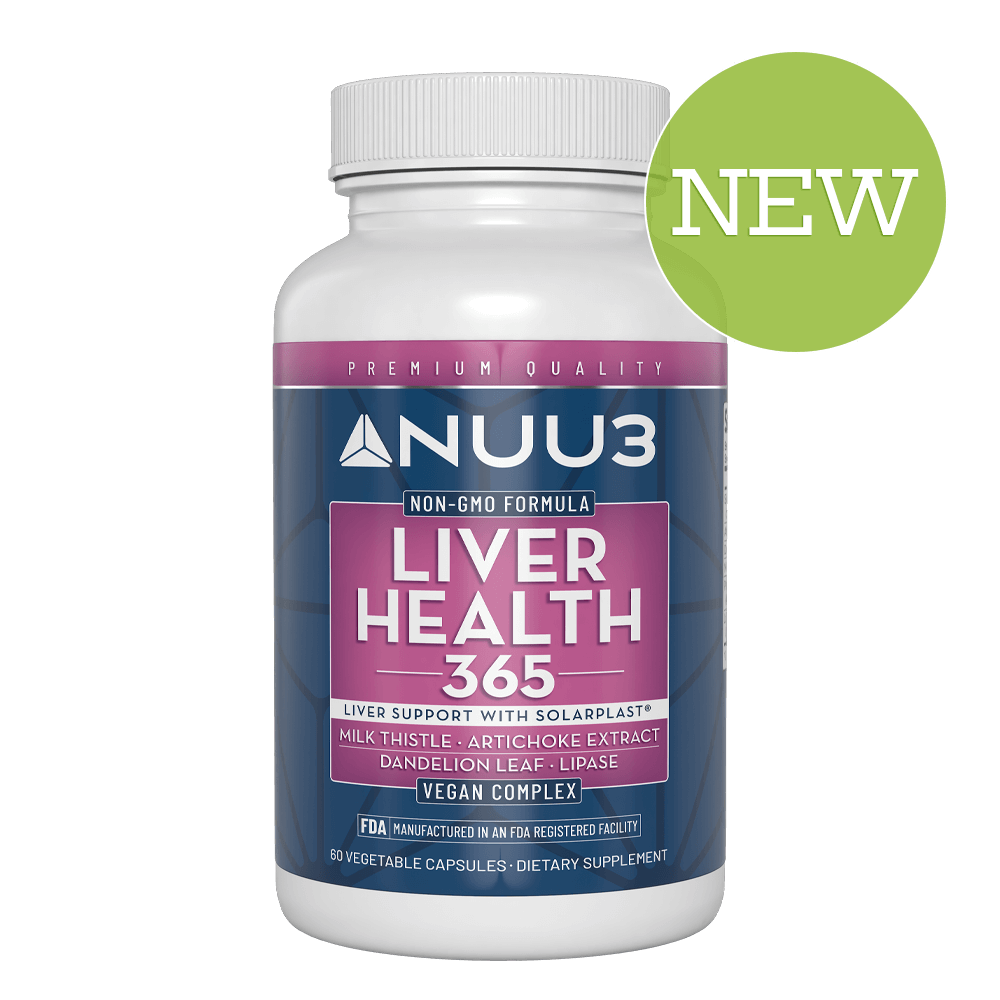Introduction
Heartburn and acid reflux are terms often used interchangeably, but they refer to different aspects of a common digestive issue. Acid reflux is a condition where stomach acid flows back into the esophagus, leading to various symptoms, one of which is heartburn. Heartburn, on the other hand, is the uncomfortable burning sensation in the chest or throat caused by acid reflux. Understanding the difference between these two terms is important for identifying and managing symptoms effectively, whether they occur occasionally or as part of a chronic condition like GERD.
What is Acid Reflux?
Acid reflux occurs when stomach acid flows back into the esophagus due to a weakened or malfunctioning lower esophageal sphincter (LES), the muscle that acts as a valve between the stomach and esophagus. Normally, the LES closes after food enters the stomach, but if it doesn't close properly, acid can escape, leading to irritation of the esophagus. This causes symptoms such as regurgitation, a sour taste in the mouth, chest discomfort, and sometimes a burning sensation. Acid reflux can occur occasionally, but when it happens frequently, it may be diagnosed as Gastroesophageal Reflux Disease (GERD).
What is Heartburn?
Heartburn is a symptom of acid reflux, characterized by a burning sensation in the chest or throat. It occurs when stomach acid irritates the lining of the esophagus, often after eating or when lying down. This discomfort is usually felt behind the breastbone and can last for a few minutes to several hours. While heartburn is a common symptom of acid reflux, it doesn't always indicate a serious condition. However, frequent heartburn could be a sign of Gastroesophageal Reflux Disease (GERD), which may require treatment to prevent long-term damage to the esophagus.
Key Differences Between Heartburn and Acid Reflux
The key difference between heartburn and acid reflux lies in their definitions and how they manifest. Acid reflux is a condition where stomach acid flows back into the esophagus due to a weakened or malfunctioning lower esophageal sphincter (LES). This can cause various symptoms, such as regurgitation, a sour taste in the mouth, chest discomfort, and even sulfur burps—burps that release gas with a foul, rotten egg-like odor caused by hydrogen sulfide in the digestive system.
On the other hand, heartburn is a specific symptom of acid reflux. It’s the burning sensation you feel in the chest or throat when stomach acid irritates the esophagus. While all heartburn is a result of acid reflux, not everyone who experiences acid reflux will feel heartburn. Other symptoms of acid reflux, such as sulfur burps, chest pain, or regurgitation, may occur without the burning sensation of heartburn. Understanding this distinction helps in diagnosing and managing acid reflux more effectively.
You May Also Like to Read: Gut Healing Diet
Causes of Heartburn and Acid Reflux
The causes of heartburn and acid reflux are closely related, as heartburn is a symptom of acid reflux. Acid reflux occurs when the lower esophageal sphincter (LES), the muscle that separates the stomach from the esophagus, weakens or relaxes inappropriately, allowing stomach acid to flow back up into the esophagus. This backflow of acid can irritate the esophagus, leading to the burning sensation commonly associated with heartburn.
Some common causes include:
-
Dietary Triggers: Foods like fatty or fried foods, spicy dishes, chocolate, citrus fruits, caffeine, and alcohol can relax the LES, leading to reflux and the characteristic stomach-burning sensation.
-
Lifestyle Factors: Smoking, being overweight, and lying down or going to bed soon after eating can increase pressure on the stomach and cause acid reflux.
-
Overeating: Large meals can stretch the stomach and put additional pressure on the LES, making it easier for stomach acid to escape into the esophagus.
-
Hiatal Hernia: A condition where part of the stomach pushes up into the chest through the diaphragm, which can weaken the LES and cause acid reflux.
-
Pregnancy: Hormonal changes and the growing uterus can put pressure on the stomach, leading to acid reflux and heartburn.
These factors contribute to the development of heartburn, characterized by the burning sensation in the chest or throat, and other acid reflux symptoms like regurgitation and a stomach burning sensation. Managing these causes through diet and lifestyle changes can help reduce the frequency of heartburn and acid reflux.
Symptoms of Acid Reflux:
Acid reflux is the broader condition, with several possible symptoms, including:
-
Regurgitation: A sour or bitter taste in the mouth due to stomach acid rising into the throat or mouth.
-
Chest Discomfort: A general feeling of discomfort or pressure in the chest that can sometimes mimic a heart attack.
-
Sore Throat or Hoarseness: Acid irritation can cause persistent throat pain or a raspy voice.
-
Chronic Cough: A persistent cough, particularly at night, can be caused by acid irritating the throat.
-
Sulfur Burps: These unpleasant burps, which smell like rotten eggs, occur due to digestive issues associated with acid reflux.
Symptoms of Heartburn:
Heartburn is a specific symptom of acid reflux, characterized by:
-
Burning Sensation in the Chest: A painful burning feeling in the middle of the chest, often after eating or when lying down.
-
Burning in the Throat: Stomach acid can also cause a burning sensation in the throat, especially when bending over or lying flat.
-
Pain that Worsens After Eating or Lying Down: Heartburn typically intensifies after meals or when lying flat, as the acid can more easily escape into the esophagus.
-
Lasting Discomfort: Heartburn can last for a few minutes or persist for hours, depending on the severity.
In summary, acid reflux refers to the overall condition with a range of symptoms, while heartburn is the burning sensation caused by stomach acid irritating the esophagus, one of the most common and recognizable symptoms of acid reflux.
Diagnosis of Acid Reflux and Heartburn:
Diagnosing acid reflux and heartburn typically starts with a review of symptoms and medical history. If symptoms are frequent or severe, doctors may recommend further tests to confirm the diagnosis and assess the severity:
-
Endoscopy: A flexible tube with a camera is inserted into the esophagus to check for inflammation, ulcers, or other damage caused by stomach acid.
-
pH Monitoring: A test that measures the amount of acid in the esophagus over a 24-hour period, helping to confirm acid reflux.
-
Barium Swallow: X-rays taken after swallowing a barium solution to see how well the esophagus is working.
-
Esophageal Manometry: Measures the strength and coordination of the muscles in the esophagus.
Treatment of Acid Reflux and Heartburn:
Treatments for acid reflux and heartburn focus on reducing symptoms and preventing long-term complications. Common approaches include:
-
Lifestyle Changes: Dietary adjustments, portion control, weight management, and avoiding trigger foods can significantly reduce acid reflux symptoms.
-
Over-the-Counter Medications:
-
Antacids: Neutralize stomach acid quickly, providing fast relief.
-
H2 Blockers: Reduce acid production and provide longer-lasting relief than antacids.
-
Proton Pump Inhibitors (PPIs): More powerful acid reducers that help heal the esophagus.
-
Prescription Medications: For chronic cases, stronger versions of H2 blockers or PPIs may be prescribed.
-
Surgery: In severe cases, surgery like fundoplication may be required to strengthen the LES and prevent acid reflux.
In addition to these treatments, maintaining a healthy gut can be beneficial. Products like NUU3 Gut Health 365 help balance gut bacteria, which can improve overall digestion and may reduce symptoms of acid reflux by supporting a healthier digestive system.
When to See a Doctor
It's important to know when to seek medical attention for symptoms of acid reflux or heartburn, as these issues can sometimes indicate a more serious condition like Gastroesophageal Reflux Disease (GERD) or other complications. You should see a doctor if:
-
Frequent or Severe Heartburn: If you experience heartburn more than twice a week, or if it's becoming more intense or persistent, it could be a sign of GERD, which requires medical treatment to prevent complications.
-
Difficulty Swallowing (Dysphagia): If you have trouble swallowing or feel like food is stuck in your throat or chest, it could be a sign of esophageal damage or a narrowing of the esophagus, which needs medical evaluation.
-
Unexplained Weight Loss: Sudden or unexplained weight loss along with reflux symptoms may indicate a more serious condition that requires prompt medical attention.
-
Persistent Cough or Hoarseness: Chronic cough, wheezing, or hoarseness, particularly at night, could be linked to acid reflux and may require treatment to prevent long-term damage to the throat and lungs.
-
Chest Pain: Any chest pain, especially if it radiates to your arm, neck, or jaw, should not be ignored. While it could be heartburn, it’s important to rule out a heart attack or other serious conditions.
-
Vomiting or Blood in Stool: If you experience persistent vomiting, vomiting blood, or see black or bloody stools, you should seek immediate medical attention as these may indicate internal bleeding or severe esophageal damage.
Lifestyle and Dietary Tips for Managing Acid Reflux and Heartburn
Lifestyle Tips:
-
Eat Smaller, Frequent Meals: Large meals can put pressure on the stomach and LES, making acid reflux more likely. Instead, eat smaller portions more frequently throughout the day to aid digestion and reduce reflux.
-
Avoid Lying Down After Eating: Wait at least 2-3 hours after eating before lying down. This helps prevent acid from flowing back into the esophagus, especially after large meals.
-
Elevate the Head During Sleep: Raising the head of your bed by 6-8 inches can help keep stomach acid down during sleep, reducing nighttime reflux and heartburn.
-
Maintain a Healthy Weight: Excess weight, especially around the abdomen, can put additional pressure on the stomach, leading to acid reflux. This pressure can cause the lower esophageal sphincter (LES) to weaken, allowing stomach acid to escape into the esophagus and trigger heartburn and reflux. Losing weight can relieve this pressure, helping to reduce the frequency and severity of symptoms. Incorporating products like NUU3 ACV Gummies into your routine may aid in weight management by promoting fat metabolism and supporting digestive health, further helping to prevent acid reflux and improve overall well-being.
-
Quit Smoking and Limit Alcohol: Both smoking and alcohol can weaken the LES, making it easier for acid to escape into the esophagus. Quitting smoking and reducing alcohol intake can significantly improve symptoms.
Dietary Tips:
-
Avoid Trigger Foods: Common trigger foods like spicy dishes, fatty or fried foods, citrus fruits, tomatoes, chocolate, caffeine, and carbonated drinks can aggravate acid reflux. Limiting or avoiding these foods can help reduce symptoms.
-
Incorporate GERD-Friendly Foods: Opt for low-acid, high-fiber foods like lean proteins, whole grains, non-citrus fruits (like bananas and melons), and green vegetables (such as broccoli, cucumbers, and leafy greens). These foods can soothe the digestive system and prevent acid reflux.
-
Stay Hydrated: Drinking water throughout the day can aid digestion and reduce acid buildup. However, avoid drinking large amounts during meals, as this can increase stomach distension and lead to reflux.
-
Consider Digestive Supplements: Natural supplements like NUU3 Nature's Superfuel can support gut health and digestion. This supplement, rich in superfoods and antioxidants, can promote a healthier digestive system, which may reduce the frequency and severity of acid reflux and heartburn.
By combining these lifestyle and dietary adjustments with proper medical advice, individuals can manage and even prevent acid reflux and heartburn more effectively, improving their overall quality of life.
Conclusion
In conclusion, understanding the differences between heartburn and acid reflux is essential for effective symptom management. While heartburn is a common symptom of acid reflux, both can be controlled with a combination of lifestyle changes and dietary adjustments. By maintaining a healthy weight, avoiding trigger foods, and adopting healthy habits, you can significantly reduce the discomfort associated with acid reflux and heartburn, improving your overall digestive health and quality of life.











